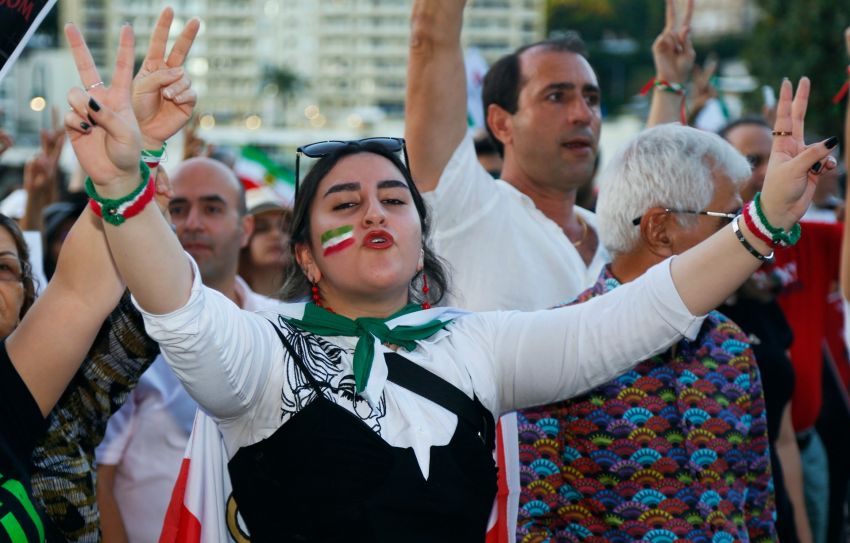
Suspensions from education, expulsions, arrests and detentions of students in Iran have intensified since the protests in September last year began and are still continuing. Gender repression and segregation and forced veiling in Iran's universities have deepened and women students are under enormous pressure.
The presence of the Basij militia of the Revolutionary Guards and other security agencies has in practice turned universities into barracks.
Since September, a wave of dismissals of Iranian university professors has been going on.
Iranian Students Day was marked on December 7. Student activism in Iran has a rich history dating back to 1941, marked by the abdication of Reza Shah and the occupation of Iran by Allied forces. Tehran University emerged as a focal point for student campaigns against authoritarianism and foreign interference during this period.
During the nationalist movement led by Dr Mohammad Mossadegh, Iranian students played a crucial role in supporting his agenda. Following the August 1953 coup and the restoration of diplomatic ties with Britain, Tehran University students redirected their political activism against the "coup regime". Despite the Mohammad Reza Pahlavi regime's attempts to quell opposition forces, Tehran University students continued to voice their dissent.
The turning point came with Mossadegh's trial in a military court, triggering a large demonstration on the university grounds. It marked the first instance when the sanctity of campus life was breached, as the Shah's troops confronted protesting students. This clash resulted in injuries and numerous arrests, setting the stage for escalating tensions.
By December 1953, Tehran was under martial law, with tanks and troops stationed throughout the city. The visit of Vice President Richard Nixon to greet the newly installed regime further fuelled discontent. Two days before Nixon's visit, students staged a demonstration in protest, facing violent suppression by the Shah's troops. The order to “shoot to kill” during the clash left three students — Mostafa Bozorgnia, Ahmad Ghandchi and Mehdi Shariat-Razavi — dead and several others severely wounded.
In memory of the three students this date became synonymous with "Student Day". Despite attempts by Mohammad Reza Shah's regime to suppress commemorations, each passing year reinforced the students' commitment to remembering the sacrifices made in the pursuit of justice and freedom.
However, the legacy of Student Day extends beyond historical commemorations. It serves as a poignant reminder of the ongoing struggles faced by Iranian students under the rule of the mullahs since the 1979 anti-monarch revolution. The dire situation has seen continued restrictions on academic freedom, suppression of dissent, and limitations on access to education.
Since February 1979, students have been among the most profoundly affected by the current regime. Tens of thousands of students have made tremendous sacrifices, laying down their lives in the relentless pursuit of freedom and justice. The Iranian student uprising in July 1999 marked another crucial juncture in the history of the democratic movement in Iran.
The 70th anniversary of Student Day stands not only as a memorial to past sacrifices but also as a call to action. The plight of Iranian students remains a critical concern, necessitating global support to amplify their voices and advocate for a more inclusive, just, and free society. A democratic, secular, and non-nuclear Iran, emphasising gender equality, human rights and the separation of religion and state and to establish a pluralist society that embraces rule of law, social justice and the elimination of discrimination based on ethnicity or religion.
On this day, we stand with the Iranian students and call to end the current repressive actions against them including deprivation of education for political, gender, or ideological reasons as a form of educational apartheid, the imposition of the compulsory hijab and the expulsion of professors and assistant professors from universities.
We call on the United Nations Institute for Training and Research (UNITAR) to establish its own supervision of Iran’s education system and not allow the rights of Iranian students and professors to become the object of oppression and gender apartheid by the dictatorship. Finally, we call for the unconditional release of all imprisoned students in Iran.
Recognising that establishing student associations is a democratic right, we condemn any suppression of free student organisations in universities and demand that the Basij militia organisations affiliated with the Revolutionary Guards Corps (IRGC) be removed from campuses.
[Mohammad Sadeghpour is President of the Association to Defend Freedom and Human Rights in Iran- Australia.]